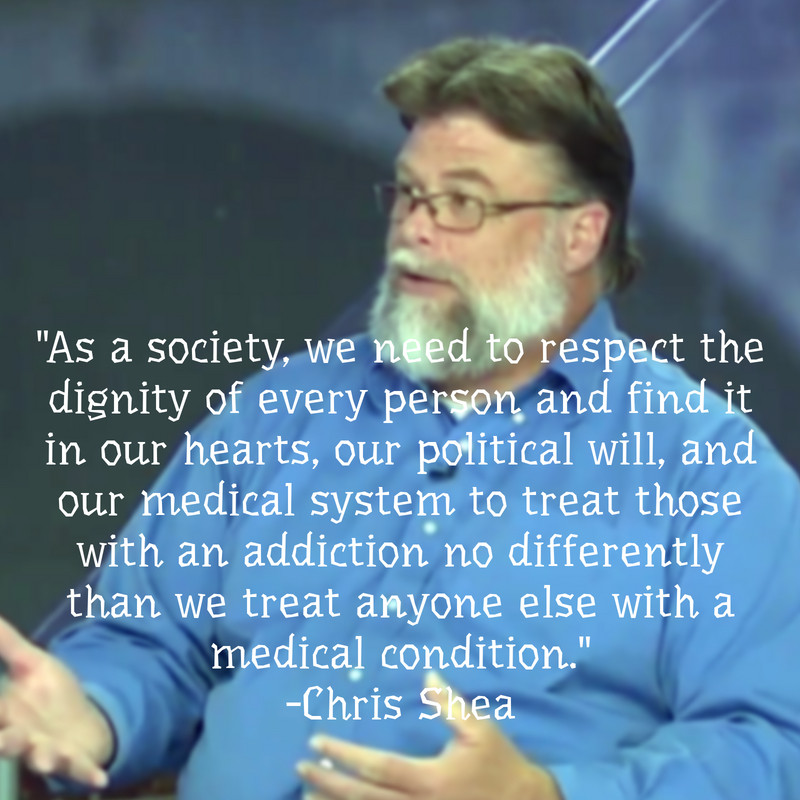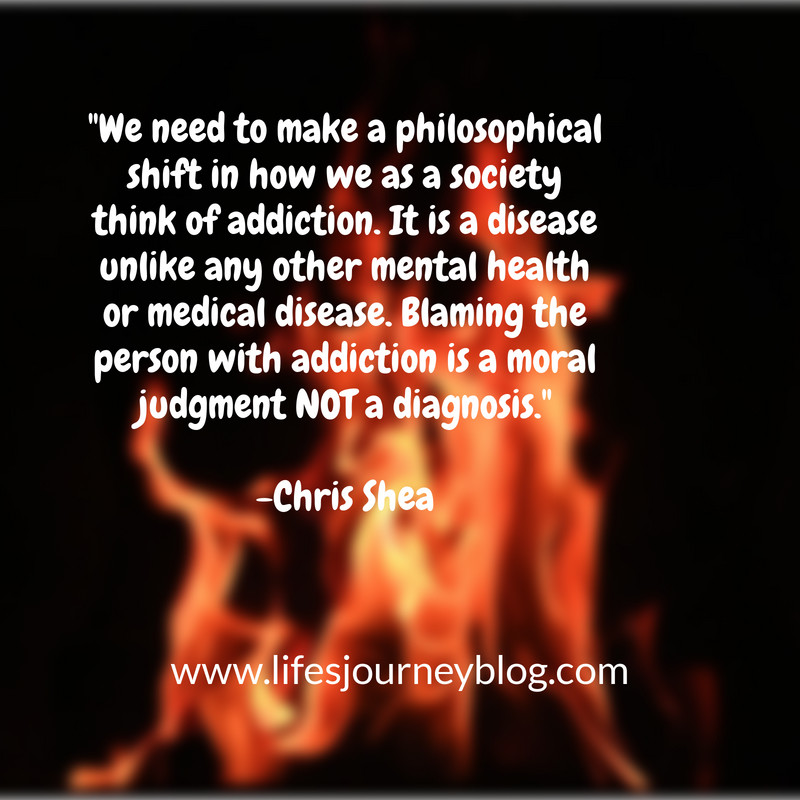Posts Tagged ‘opioidepidemic’
Treatment On Demand For Drug Addiction Is The Solution
Treatment on demand for drug addiction is not a reality in most places of the USA, yet cities like Baltimore could save over $46 million if everyone who wanted treatment received treatment. Unlike other illnesses, those suffering from drug addiction are turned away from treatment centers or forced to travel hundreds of miles to acquire treatment. There is no better solution to this opioid crisis than that of treatment on demand.
On July 11, 2019, I was interviewed on DC’s WUSA9 to talk about the opioid crisis and my opinion for its solution treatment on demand. The video is posted below. Most of us are well aware of the opioid crisis in the USA. According to the Centers for Disease Control (CDC), opioids were involved in 47,600 overdose deaths in 2017 (67.8% of all drug overdose deaths). As an addiction counselor of over 20 years, I’ve written from the perspective of what society, as well as families, can do about this crisis.
Now it’s time to write about a solution to this crisis, which I know will work, namely, treatment on demand.
I don’t write this out of a naive ignorance to the societal factors and big business practices which led to the epidemic and opioid overdose deaths we are encountering today. What we need right now are solutions and actions to ensure that this epidemic does not become a generational epidemic.
According to the Substance Abuse and Mental Health Services Administration (2014) from 2009 to 2013, less than 12 percent of people with substance use disorders in Maryland received any treatment. Meaning that a whopping 88 percent of people with substance use disorders in Maryland received no treatment.
Treatment on demand for everyone sounds costly. But not so when you examine the financial savings from other sectors of society. In 2015 the Baltimore City health department estimated it would cost $6.7 million to implement treatment on demand.
An Institute of Medicine study estimated that the cost per person per year of outpatient treatment for heroin was about $3,100. Untreated addictions, however, were estimated to cost $43,200 per year per person, mostly due to the cost of incarceration.
One study conducted in California (Ettner et al., 2006) calculated that $7 is saved for every $1 spent on drug abuse treatment; the main benefits are from reductions in drug-use-associated criminal activity and increases in employment earnings. Using Baltimore’s estimated cost of $6.7 million, a $7 savings on each $1 provides the City with a savings of $46.9 million!
Bonus: Download Chris Shea’s booklet on Life Coaching & is it for me? Click here to get it
I suggest that the first change which needs to be made is a philosophical shift in how we, as individuals and society, think of addiction. Many in society still do not believe that addiction is a disease, unlike any other mental health or medical illness.
For example, a person who is discharged from addiction treatment yet later relapses is typically judged for their lack of willpower and character. In many instances, they are not allowed back into treatment, or they are told to find a different treatment facility. Yet a person who is discharged from the hospital after a heart attack, who is told what changes to make in their physical activity, as well as diet, are not judged for their lack of willpower if they fail to make life changes resulting in a relapse evidenced by another heart attack. Where’s the difference?
The one person did not follow the recommendations of their treatment provider and returned to drug use while the other person did not follow the recommendations of their treatment provider and had another heart attack. Yet the person who experiences another heart attack will be readmitted to the hospital without question nor judgment.
This example illustrates what I mean by the phrase, treatment on demand. Anyone at any time which is experiencing a medical or mental illness who reaches out for help should immediately receive assistance. Currently, for those with medical issues treatment on demand is a reality, while those with a mental illness or substance use issue have to wait for their treatment due to a lack of treatment beds and funding.
As a society, we need to respect the dignity of every person and find it in our hearts, our political will, and our medical system to treat those with an addiction no differently than we treat anyone else with a medical condition.
{loadmoduleid 140}
How To Stop Blaming Others For The Opioid Epidemic
The blame game is alive and well, but we need to stop blaming others. The opioid epidemic grows while we as a society are blaming others and judging those who are addicted to the opioid drugs. We must work together for a viable resolution to this epidemic, and here are my suggestions.
It appears to be human nature for us to want to find a reason, cause, or another person to blame for something that has happened to us or to a loved one. Think of how easy it is for us to throw blame around when we are caught practically red-handed in an act. How did we learn this?
The blame game has been with us since our earliest days of childhood. As a child, we tried the excuse that someone else made me do it to see if that excuse would work. Depending on your childhood it had varying success, yet any time that it worked we learned that blaming was a viable excuse. As we’ve grown into adulthood many of us continue to use this excuse.
Many of my clients want to find who is to blame for the way they are today. They are convinced that if they find out which parent or sibling created the current negative thoughts or behaviors all would somehow magically be well. Yet this isn’t the case, so I don’t allow my clients to go down that path.
Bonus: Download Chris Shea’s booklet on Life Coaching & is it for me? Click here to get it
When my clients, or even ourselves, wish to find someone in the past to blame for our current situation all that we are doing is avoiding our responsibility and our actions for making a change today. Even if there were someone from our past legitimately responsible and whom we could blame, how would that change who I am today? All that does is to serve as knowledge but doesn’t give me anything to do that will change how I feel or act today. Therefore, I stay away from the blame game in all situations as it serves no purpose in the present but only to educate us about the past. So even if a client’s parents were to blame for their current situation it is still up to the client themselves to make the necessary changes which will make their lives better. The same goes for the blame game when it comes to addiction and the opioid epidemic.
Over the past couple of decades, I’ve worked with thousands of people who are addicted to drugs and alcohol, guiding them into lives of recovery. Each of them needed to work on their present lives and make changes so that their recovery would be a daily way of life. Blaming their families, communities, doctors, or Pharmaceuticals only serves to focus our anger away from what needs to be dealt with at the present moment. At this moment we need to take action and make changes as a society or else this opioid epidemic will not end.
I don’t write this out of a naive ignorance to the societal factors and big business practices which led to the epidemic and opioid overdose deaths we are encountering today. I can make a very long list of who I would blame for this opioid epidemic, but as I’ve stated, what’s the point? What we need right now are solutions and actions to ensure that this epidemic does not become a generational epidemic.
I suggest that the first change which needs to be made is a philosophical shift in how we as individuals and society think of addiction. Many in society do not believe that addiction is a disease unlike any other mental health or medical disease. Their blaming the person with the addiction only serves as a moral judgment on a person’s character. Yet if that same person were to suffer from any other chronic medical disease they would receive the proper care without question and without judgment.
For example, a person who is discharged from addiction treatment and later relapses is judged for their lack of willpower and character. In many instances, they are not allowed back into treatment or they are told to find a different treatment facility. Yet a person who is discharged from the hospital recovering from a heart attack who is told what changes they need to make in their physical activity, as well as diet, are not judged or criticized if they fail to make those changes and end up with another heart attack. What’s the difference? The one person did not follow the recommendations of their treatment provider and returned to drug use while the other person did not follow the recommendations of their treatment provider and had another heart attack. Yet the person who suffers the second heart attack will be readmitted to the hospital without question nor judgment. This societal attitude must change!
What can we do to make a difference in solving this opioid epidemic? Here are my suggestions:
- Educate ourselves on the current state of the opioid epidemic and learn about your local resources available to help those suffering from addiction and struggling in recovery.
- Gather as a neighborhood or community pooling together your resources to work on viable solutions unique for your community. As a society, we need to stop saying that we want this epidemic to stop while at the same time deny the building of treatment centers or recovery housing near or in our neighborhoods.
- Doctors and Mental Health Counselors need to be educated about the addiction field and best practices for treating those who are in active recovery. As a counselor and an educator myself, I find it disheartening that the addiction courses I teach to those in the counseling profession are only electives and not mandatory courses. Medical professionals such as doctors are in the same educational situation where they may only have to take one addiction studies class in their entire career. This is not to blame either of these professions but to provide them the necessary knowledge and tools since they are in the front line of this epidemic.
- Be compassionate to those you know who are in recovery or still suffering from their active addiction, and don’t forget about their families who also need compassion and support.
If we tackle this opioid epidemic in light of its medical and mental health status we will turn this around and as a society, we will reap the rewards of a healthy populace.
{loadmoduleid 140}


